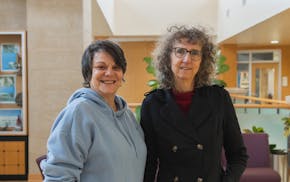We had come to China almost accidentally. Retiring after 40 years of teaching, my wife, Char, received an e-mail asking if she was interested in teaching in China. Ten months later, we packed our daily life into suitcases and moved it 7,000 miles to Hangzhou
Everything was new and strange. Lying in a cold bed in a cold apartment that first night — far from everyone and everything and all of the acquired comfort we knew — we wondered about the wisdom of our decision.
We spent three months pointing and using hand gestures, wishing we could interact with the Chinese in more substantive ways. Finally, Char passed word among the Chinese English teachers that we wanted a translator.
So on a bright Saturday morning in April, we find ourselves walking along WenEr Road in Hangzhou looking for a girl with a backpack. Pedestrians and bicycles and the ubiquitous, silent electric motorbikes fill the sidewalks and bike lanes. Cars rush along the four-lane, one-way street while city buses transport riders in the opposite direction.
Why an 18-year-old high-school senior has agreed to accompany an American couple in their sixties around Hangzhou we cannot imagine, but when we wave to Eryi (pronounced "are-ee") on this sunny morning, she waves back enthusiastically. We are easy to identify, the only westerners on the street.
Awkward hello moments quickly evaporate. We head off to a get-acquainted lunch. Within minutes of being seated, Eryi helps us put at ease a newly hired, nervous server who was waiting on westerners for the first time. And as we speak with the server through Eryi, our conversation blossoms into an interview with the restaurant manager, surely a lost opportunity if Eryi weren't present.
Our conversation blossoms. In fact, our entire afternoon begins budding into a flowering relationship. Char and Eryi chat like lost friends reunited as we walk to a store, where Eryi helps us exchange some light bulbs.
Later, Eryi helps us speak with a street food vendor. Char passes the vendor each morning on the way to school, and each Wednesday night we stop there to get our dinner. At last, we meet. Eryi explains who we are. We ask questions. I make a video of the man creating one of his tasty pies.
By the end of this first day together, Char and I are thrilled with Eryi and with our new experiences. Eryi seems as delighted as we are. We realize that all of this is new to Eryi, as well.
I suggest that perhaps Eryi could be our Chinese daughter. She is silent a moment, and then says, "Well — maybe granddaughter."
"Ah — of course, " I say, somewhat chagrined by the reminder of the 45-year gap in our ages.
After our day together, I thank Eryi in an e-mail. She responds enthusiastically, commenting that we "use chopsticks amazingly well and naturally." (Later, we gently point out that, even though we are not Chinese, we have been using chopsticks since before she was born. She smiles.)
"I told my dad, 'They're just like us. They eat our food. They use chopsticks. They ride the bus,'" Eryi tells us excitedly, next time we see her. "'The only difference is, I have to speak English instead of Chinese.' "
It's a sentiment that Char and I have experienced so many times in so many places.
Over our next few meetings, Char and Eryi continue to grow close. When we part, we exchange small gifts. Char cries. As we leave, Eryi texts her and tells her not to be sad.
How could we have known, lying in that cold bed in a cold apartment that first night, far from everyone and everything and all of the acquired comfort we knew, that our Chinese "granddaughter" was waiting for us to find her?
Joseph Koppi is a freelance writer living in Mendota Heights. He writes the travel blog BoomerTrekker, www.boomertrekker.com.

Yuen: Why do people forgive? It's messy, complex and 'the best form of self-interest'

Hark, downtown Minneapolis' only vegan, gluten-free cafe, closing April 28

Critics' picks: The 12 best things to do and see in the Twin Cities this week
How the Goo Goo Dolls learned the music biz from Minneapolis bands

